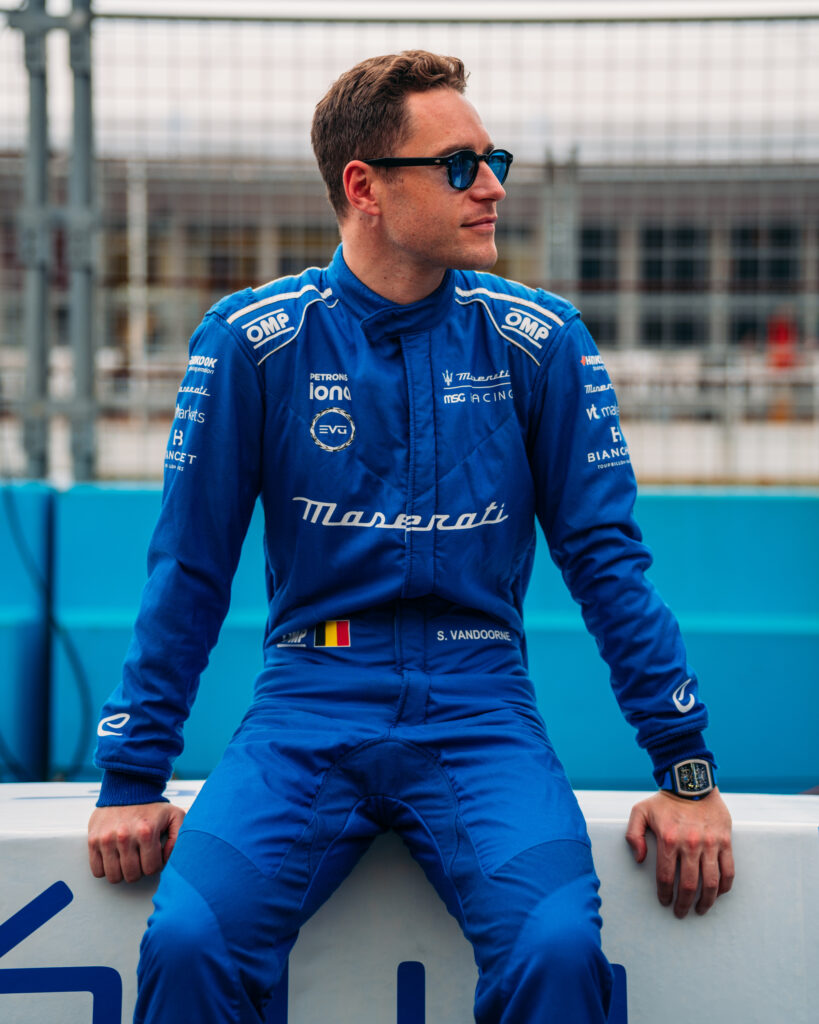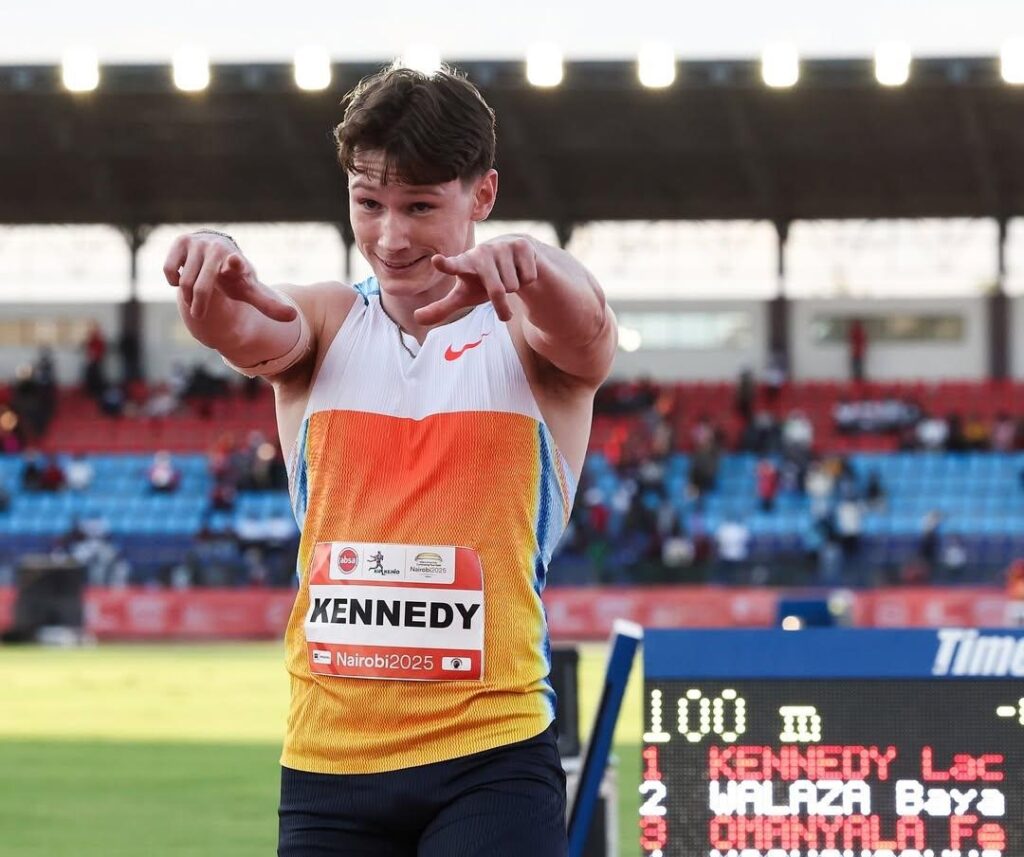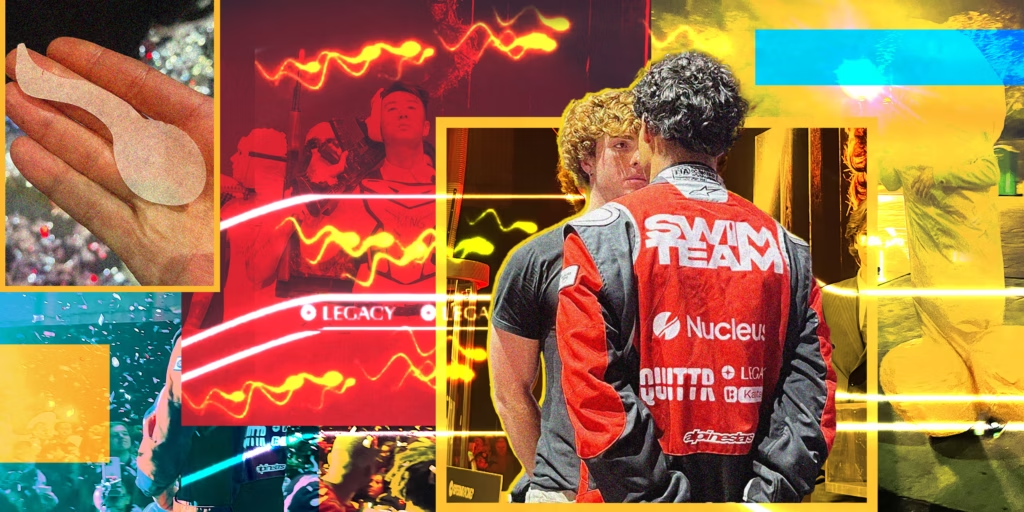THE OLYMPIC GAMES have long been celebrated as a bastion of integrity, fairness and the absolute pinnacle of human performance in sport. A key aspect of building and upholding that reputation is the Olympics’ uncompromising stance against cheating, and by extension, the use of performance enhancing drugs. Since 1968, Olympic competitors have been subjected to extensive anti-doping measures at the behest of the World Anti-Doping Agency (WADA) to ensure complete fairness in competition. Such an austere approach might seem commonplace in modern sports, but it has recently earned the Games some detractors.
If you’ve ever watched an Olympic event and thought, Sure, that guy is fast, but just how fast could he be if he was juiced to the gills, the Enhanced Games might be for you. Not only do the Enhanced Games allow athletes to use performance enhancing drugs, they’re openly advocating for them to do so in order to rekindle the relationship between science and sport while proving just how much the human body can do when operating at its full—enhanced—potential.
The Enhanced Games have acquired the necessary funding and requisite public interest to almost become a reality. While no official date has been set for the Games’ first edition, they’re drawing intrigue from across the globe. If you’re reading this article, it’s likely your interest has also been piqued and you have many questions. So, allow us to answer them.
What are the Enhanced Games and how do they work?
The Enhanced Games are a planned (there’s no official date yet), multi-disciplined international sporting event, similar to other global sporting events like the Olympics. The key difference, however, is that Enhanced Games athletes won’t be subject to drug testing and are therefore able to use performance enhancing drugs (PEDs) to their heart’s content—and possibly its detriment. No, the Enhanced Games will not force participants to use PEDs, but the event will not be following the rules of the World Anti-Doping Agency.
The Enhanced Games are the brainchild of Australian businessman Aron D’Souza, who is the Games’ president and came up with the idea when he realised most people at his gym were using steroids. The Enhanced Games have secured funding from a range of venture capitalists, notably Peter Thiel, the billionaire founder of PayPal and an early Facebook investor. Some of that funding will go towards cash prizes for podium finishers—a distinct point of difference with the Olympics, which do not offer any financial remuneration for athletes. Any Enhanced Games athletes who break a world record will also receive a prize in excess of $1 million, which is guaranteed to attract swaths of juiced-up athletes.
While the Enhanced Games will follow a similar blueprint to the Olympics, they understandably have a smaller program with less sports on the schedule. The Games will include events in five sporting categories: athletics, aquatics, gymnastics, combat and strength. These sports were deemed to offer heightened demonstrations of individual athletic performance.
When are the Enhanced Games happening?
There is no official date for the first edition of the Enhanced Games, although event organisers are aiming for the maiden event to be held in 2025. Earlier this year, founder and President Aron D’Souza announced that the Games had received the required amount of equity to fund an event, so expect an official announcement to arrive shortly.
Who will be competing in the Enhanced Games?
As you might expect, the promise of relaxed anti-doping rules and far less prestige than the Olympics has not lured a plethora of elite athletes into the Enhanced Games’ grasp. Most Olympic athletes likely aren’t willing to give up on their dreams of Olympic glory in exchange for a cash prize of an unspecified amount and a surefire admonishment from the global athletic community for doping.
Don’t expect the likes of Usain Bolt and Michael Phelps to be competing in the Enhanced Games. The competitors will likely be made up of Olympians who are past their physical prime and eager to earn few extra bucks, and athletes who weren’t good enough to make it to the Olympics in the first place. Australian swimmer James Magnussen, who has become the first high-profile athlete to announce his support for the Enhanced Games, fits into the former category nicely.
Magnussen is a two-time world champion in the 100-metre freestyle and has three Olympic medals in his collection—although none of them are gold. Magnussen last swam competitively at the 2018 Commonwealth Games and at 32 years old, he’s well past his physical best. The allure of a $1.5 million prize for breaking a world record was enough to lure Magnussen out of retirement though. Now, prize money permitting, Magnussen has promised to come on board. “If they put up $1m for the 50-freestyle world record, I will come on board as their first athlete,” he said.
Subtlety has never been the Enhanced Games’ goal in regard to the use of PEDs, and Magnussen was anything but subtle when describing how he’ll be preparing to break a world record. “I’ll juice to the gills and I’ll break it in six months,” he told the Hello Sports podcast. “When you sit around the pub with your mates and say ‘What would you do for a million bucks?’ Well, I’d do this for a million bucks,” he added.
View this post on Instagram
Why do the Enhanced Games exist?
The purpose of the Enhanced Games is not to televise Jackass-level reckless antics under the guise of a sporting event. The Games actually has a fairly strong argument justifying their existence. The Enhanced Games’ website, which proudly proclaims the event “the Olympics of the future”, also features a number of arguments against the Olympics—some of which even verge on compelling.
To begin, the Enhanced Games claim that 44 per cent of athletes at other major sporting events already use PEDs, citing a WADA-commissioned report on the 2011 World Athletics Championship. The Games propose abandoning the existing anti-doping ideals of the Olympics altogether as a superior alternative to attempting to limit cases of doping.
The Enhanced Games turn to mankind’s long history of using performance enhancers for optimal athletic output as evidence of the need for science to have a far greater involvement in sport. Their website claims that anti-doping policies have stifled scientific growth over the last half-century while arguing that WADA’s drug tests are invasive procedures that restrict athletes from reaching their full potential.
In their most compelling argument, the Enhanced Games are also taking a stand against the underpayment of Olympic athletes—albeit alongside the strange idea that capitalism, private equity and for-profit ventures should factor into all modern sporting events. The International Olympic Committee (IOC) does not offer monetary rewards for Olympic athletes. Medallists from some countries receive remuneration for their efforts from their own national Olympic committees, but even that is paltry compensation at best. As a result, many Olympic athletes who aren’t able to secure lucrative sponsorship deals live on little to no income while training like professional athletes. The Enhanced Games approach payment differently by offering a base salary for competitors as well as additional prize money.
What’s the controversy with the Enhanced Games?
Some reactions to the Enhanced Games have been positive, generally due to excitement surrounding the prospect of witnessing what a PED-fuelled athlete uninhibited by anti-doping rules can do. For the most part though, the international community has not been sparing in its condemnation of the Games. When asked about the Enhanced Games, the IOC said the “idea does not merit comment”, while the Australian Olympic Committee has called the event “dangerous and irresponsible”.
That sums up the majority of responses to the Games, with the safety of athletes typically at the top of the list of concerns, as well as the potential message the event sends to younger generations of athletes. While fairness is a major reason for the Olympics’ anti-doping policies, the threat posed to athlete’s health by PEDs is also a contributing factor. The Enhanced Games promise extensive health testing for all competitors, along with handsome compensation, but the risks associated with PEDs like anabolic steroids, which include infertility, nerve damage and issues with fluid retention, will likely scare away plenty of athletes.
Of course, there’s also the potential hit to moral integrity that breaking away from decades of established sporting ethics will cause, but that may not be a deal-breaker for some. And while the international community will condemn the Enhanced Games, that likely won’t stop them from happening.
Do the Enhanced Games make any good points about the Olympics?
For the most part, no. It’s doubtful that the Enhanced Games’ arguments about exploring mankind’s full potential and bringing science back into sport will resonate with staunch believers in the Olympics’ non-profit uber-fair model. That being said, the Enhanced Games do shed some light on the gross underpayment of Olympic athletes.
While the IOC is a non-profit organisation, the Olympics make a lot of people a lot of money—but these people are rarely athletes. Besides a select few Olympians who have managed to transcend their sports and become global marketing superstars, few athletes are able to attract lucrative sponsorship deals that can keep them afloat once their physical prowess leaves them.
Being an Olympic athlete is a massive commitment, one that’s on par with a full-time job. But with little financial remuneration in return for that commitment, events like the Enhanced Games can be an appealing alternative. It’s the unpaid nature of being an Olympic athlete that will force many to turn to the Enhanced Games as a source of income. No matter your stance on a juiced-up version of the Olympics, you’ll likely agree that our Olympic heroes shouldn’t be struggling to make ends meet.

Getty Images
Related:















